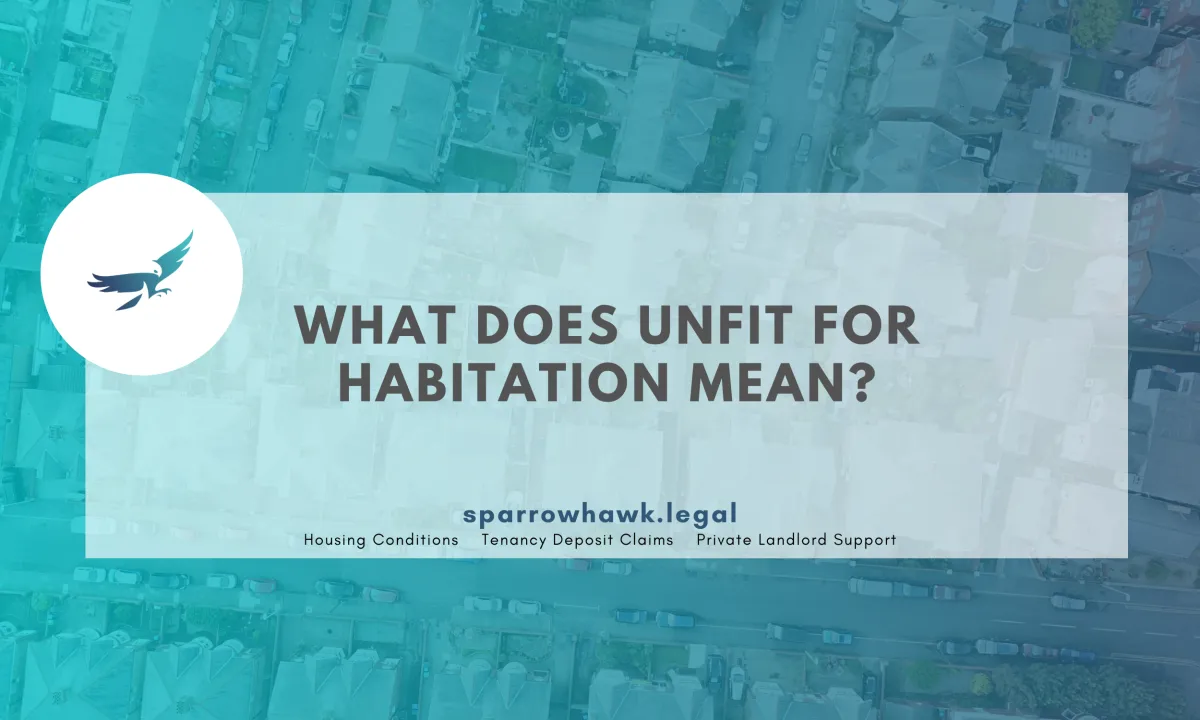Private Landlord Claims
We are here for you if you are a private tenant with housing disrepair
Take our free quiz to find out if you have a claim or book a call with our friendly Housing Disrepair Team
Yes, we do help Private Tenants
But we do understand that it's not an easy decision.
Are you are a private tenant living with housing disrepair?
Are you are scared you might not get your deposit back?
Are you frightened about asking for help in case your landlord evicts you?
Are you at breaking point and just can't take it anymore?
What you need to do
The first step is to contact us. We won't do anything or contact your landlord without your consent. We will discuss your options with you and if we can help we will, but a housing disrepair claim might not be the right option and we will advise you accordingly.
Get Started Today
STILL NOT SURE?
Frequently Asked Questions
We hope this information is useful, but please contact us if you have any other questions
Can my landlord evict me if I start a claim?
The short answer unfortunately is still yes. Whilst there are some changes to the law coming which means landlords will not be able to evict you if you're not at fault, those changes still have yet to come into force and landlords can and will still evict as a means of retalliation.
How much will it cost me to claim?
We help private tenants on the same basis as council and housing association tenants - no win no fee. This means you do not pay anything up front and only pay for our services when your claim is successful.
What can I claim for?
You can claim compensation for living in a property that is in disrepair, along with any damages for personal items that have been damaged and any injury to your health due to the disrepair.
How much compensation will I receive?
The main focus of a housing disrepair claim is to get your property repaired to the highest possible standards (not your landlord's standard). Compensation depends on the severity of the disrepair and how long you have been complaining about it. It varies on a case by case basis.
What do I need in order to make a claim?
You need to have informed your landlord of the disrepair and given them a reasonable amount of time to make those repairs. If they are ignoring you or refusing to repair then providing you still live in the property and can prove that you have notified the landlord then you can make a claim.
I am in arrears, does this make a difference?
Yes, it can make a difference to your claim. If you are not paying rent (even if you believe that withholding rent is fair due to the poor state of your property) you are in breach of your tenancy agreement and your landlord can evict you.

What does Unfit for Habitation Mean?
This is a judgment from a Circuit Judge about what it means for a home to be unfit for people to live in, based on specific laws. It seems to be the first time this issue has been discussed at this level. The company involved, Red Kite, tried to appeal the decision but was refused, so they might take it to a higher court.
Background: Ms. Jillians has been a tenant of a three-bedroom house since May 2013. When she moved in, she had eight children; by 2018, she had seven, and by 2021, she had six.
Ms. Jillians claimed that her landlord, Red Kite, did not keep the house in good condition as required by law. An expert found several problems, including:
Bedrooms: Mould growth.
Bathroom: Mould and a faulty electric shower.
Kitchen: Water damage and dampness, plus a faulty socket.
Exterior: A broken rear door and damaged fencing.
Red Kite defended itself by saying Ms. Jillians hadn't reported these problems properly, didn't allow access for repairs, and that the house wasn't unfit because of how many people lived there. They also claimed she owed them money for damages.
Counterclaim: Red Kite claimed Ms. Jillians owed them over £3,200 for repairs they said were due to her actions. However, during questioning, it was revealed that Red Kite hadn’t followed its own rules on charging for repairs and hadn’t properly informed Ms. Jillians about any charges. The court dismissed this claim entirely.
Main Claim: Ms. Jillians said she repeatedly reported the mould and damp issues over the years. Red Kite had no records to back up their claims that she hadn’t reported the problems. The judge accepted that Ms. Jillians had indeed reported these issues multiple times.
Expert Evidence: An expert identified the problems, such as poor insulation and leaks, that contributed to the mould. While Red Kite’s expert noted similar issues, they blamed Ms. Jillians’ lifestyle for the mould. However, Ms. Jillians maintained she followed the recommended practices to prevent mould, but it continued to worsen.
Tenant Conduct: Red Kite knew how many people lived in the house when they signed the tenancy agreement and couldn’t claim overcrowding as a problem. Even if there were occasional refusals for access, Red Kite had delayed necessary repairs.
Conclusion: The judge used other legal cases to define what "unfit" means for a home. They determined that the criteria for being “fit for habitation” should be based on the health and safety of the people living there.
Did you know you can Rate your Landlord?
with Marks Out of Tenancy if you're
Looking for the best landlords and letting agents...
Join the thousands of renters rating and reviewing their landlord, letting agent and rental properties. Tell your story, share your experience, rate your landlord and letting agent.
Sparrowhawk Legal Ltd | Registered in England and Wales | Registered Company No: 14507943 | Registered office: 5th Floor 167-169 Great Portland Street, London, W1W 5PF | Tel 0204 581 9300
Sparrowhawk Legal Ltd is authorised and regulated by the Solicitors Regulation Authority No. 8004127
Sparrowhawk Legal is a trading name of Sparrowhawk Legal Ltd.
© Copyright 2024. Sparrowhawk Legal. All rights reserved.

